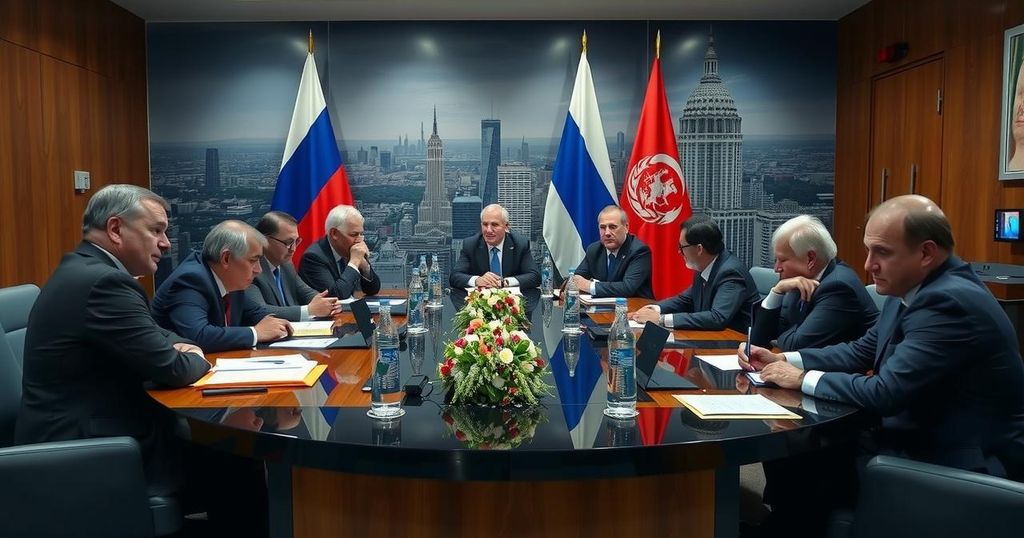Russia’s Gas Diplomacy at COP29: A Shift Towards Ties with Azerbaijan

COP29 in Baku featured a large Russian delegation engaging in discussions about gas cooperation with Azerbaijan, ultimately highlighting a shift towards closer ties between the two nations. Aliyev’s remarks on fossil fuels stirred controversy, while broader Western media coverage focused on the implications of Azerbaijan’s actions amidst ongoing geopolitical tensions and climate commitments.
The recent UN Climate Change Conference (COP29), held in Baku and concluding on November 22, was marked by a significant Russian delegation comprising 900 members, the third largest after Azerbaijan and Brazil. Despite the forum’s focus on climate actions, the conference saw Russia and Azerbaijan engaging in discussions regarding gas and oil cooperation, possibly to circumvent sanctions imposed following Russia’s invasion of Ukraine. Notably, Azerbaijani President Ilham Aliyev controversially proclaimed fossil fuels as a “gift of God” during his address, criticizing Western nations for perceived hypocrisy as they sought to buy Azerbaijani gas post-invasion.
The tone and activities at COP29 highlighted Azerbaijan’s pivot from Western alliances towards closer ties with Moscow. Azerbaijan’s state media showcased a positive narrative regarding relations with Russia, contrasting with the West’s concerns regarding Azerbaijan’s human rights record and its military actions in the region, particularly against Armenia. The conference offered Russia a stage to reinforce its energy negotiations in the context of both EU reliance and regional energy dynamics.
Further complicating the situation, Azerbaijan’s attempts to mediate energy agreements between Russia, Ukraine, and the EU, particularly concerning gas transit routes, appeared shaky amidst Ukraine’s firm stance against prolonging cooperation. Additionally, accusations surfaced that Azerbaijan’s presentation of fossil fuels contradicted the conference’s aims of transitioning towards renewable energy.
The dynamics at COP29 reflected the geopolitical landscape exacerbated by Russia’s actions in Ukraine and the resulting sanctions. With Azerbaijan serving as both the host country and a gas supplier to Europe, the conference became a battleground for energy negotiations. The collaboration between Azerbaijan and Russia has deep historical roots, solidified by alliances that date back to prior conflicts and economic interests, particularly in the fossil fuel sector. The backdrop of climate change discussions starkly contrasted with the continued dependency on fossil fuels, showcasing a complex relationship between energy needs and environmental responsibilities.
In conclusion, COP29 showcased the intersection of geopolitics and climate negotiations, illustrating how energy diplomacy continues to shape regional alliances. Russia’s agenda at the conference seemed more focused on oil and gas cooperation rather than genuine commitments to combat climate change, raising concerns about sincerity in environmental discussions. As the world grapples with the realities of climate change, the narratives emerging from COP29 reveal profound challenges and contradictions within the global response to environmental issues, particularly from fossil fuel-dependent nations.
Original Source: theins.ru








